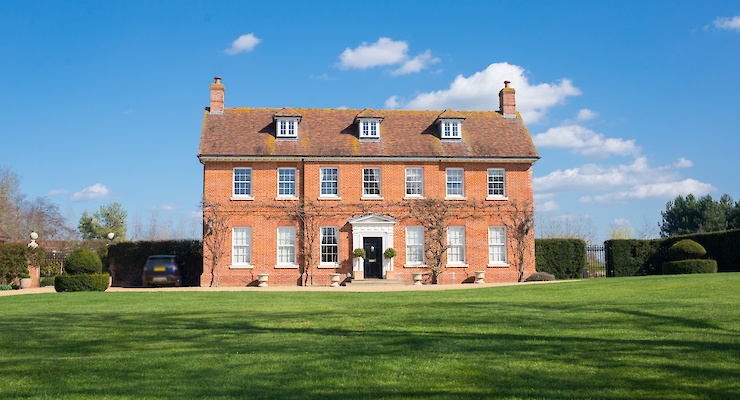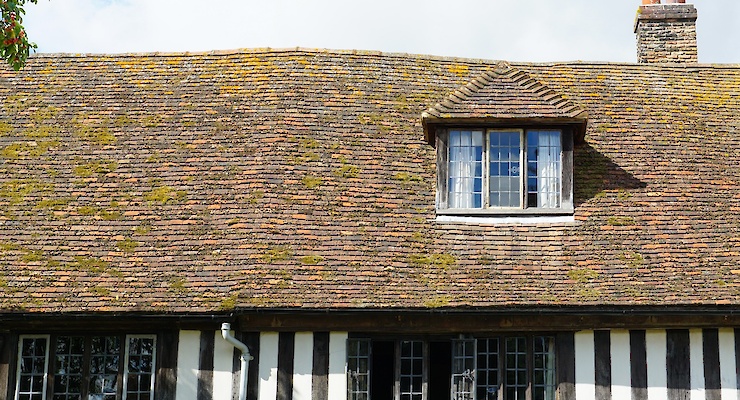


Head of Content

Mortgage Advisor & Director
Can you get a mortgage for a period property?
If you're in the market for a period property, you might be wondering if it's possible to get a mortgage. It can be a little more difficult than getting one for an average home, but there are still lenders out there who will work with you and your needs.
At Teito, we're fully independent which means we work with hundreds of lenders, including those who are willing to lend on period properties. Get started comparing deals now or carry on reading to learn more.
What classes as a period property in the UK?

There are many different definitions of what constitutes a 'period' home, but one definition is any house built before 1918; not only does this date include most classic Georgian and Victorian houses, but also makes it very possible for more modern buildings such as Arts and Crafts homes or even early 20th Century flats (built during World War I). A period property could be anything from an individual cottage to a large country pile, so there's plenty of choices out there.
Why can it be difficult to get a mortgage on a period property?
There are a few reasons why it can be more difficult to get a period property in the UK, and it's all to do with the age and condition of the property. If the property is Grade I or Grade II listed, this brings additional difficulties when it comes to applying for a mortgage.
Mainstream mortgage lenders tend to have a more narrow definition of a standard property, and any property that doesn't meet those requirements, such as having a thatched roof, are classed as 'non-standard' construction. Through the eyes of a mortgage lender, non-standard properties are less straightforward to sell and bring concerns around maintenance, ensuring the value in the event of reposession. To give an example of this: period houses are rarely fitted with damp-proof courses, so if you have issues with damp it might be difficult to get a mortgage for the property unless you decide to take very expensive steps to resolve them.
Lenders don't know what period properties will be like twenty years down the line – whether they'll need major renovations or repairs, or simply depreciate further - and can be unwilling to take on this liability.
For listed buildings, Lenders will usually only accept period conversions if the period elements are still intact in some form (such as external walls or original windows), and they can check this by getting the seller to complete a survey report on these aspects of the property. They might also want evidence that parts of the building have been given listed status by English Heritage or another appropriate organisation.
Researching and dealing with period properties
If you're a first time buyer or don't have much experience when it comes to buying period property in the UK, then chances are you'll be looking for advisers who specialise in this area. These advisers will be able to offer more tailored advice on the best mortgages out there for period homes. At Teito, our team have helped many people like you to get approved for a period property mortgage, whatever their situation!
Period property maintenance
There are no two ways about it – if you want your lovely period property to stay in a state of good repair, you'll have to spend some money and time on the upkeep.
This includes everything from regular cleaning and pest control to repainting or replacing broken window panes. If possible, try to think ahead as well – for example preserving your roof against future repairs before problems arise, or sorting out that damp problem before it has a chance to do damage elsewhere!
How do I get period property mortgage?

If you really want to own period property, don't let anything stop you from getting it! It's usually achieveable, it just needs careful planning and approaching the right lenders.
With period property there can be a lot of extra admin involved, so you'll probably want to employ the help of an adviser or solicitor who has experience in this area. Our experienced mortgage brokers are on hand to offer advice and assistance with period properties (whether you're buying one or selling) – get in touch today!
What about insuring a period property?
As we've just mentioned, one of the biggest downsides about period buildings is their maintenance requirements.
For this reason, it can also create problems when it comes to getting the right level of insurance. In this regard, period properties are usually seen as being more of a liability than a standard property and may be marked up in price based on these perceived issues.
In addition to that, period homes often fall into specific categories when it comes to insurance (if they're listed or in a conservation area for example), so you might need to get extra cover from your provider (or be required to pay a slightly higher premium if the period property is already insured). This can all add up if you live in an older property. It's definitely worth getting advice from somebody who specialises in period properties before buying one!
Apply now for a period property mortgage
We've helped many people just like you to find their perfect mortgage. If you're looking to buy a period property, we work with hundreds of lenders offering thousands of mortgage deals, and our process is simple. Start comparing deals now and apply online in minutes!
Choosing an Adviser
Selecting a qualified and experienced mortgage adviser is of great importance. To choose a suitable adviser, evaluate their qualifications, experience, and reputation, and ensure they are regulated by the Financial Conduct Authority (FCA).
Read reviews from previous clients and make sure they provide a clear explanation of the products and services they offer, as well as the fees and charges associated with them.

Get your mortgage in principle certificate in 5 minutes
Last updated 22 February 2024





























































